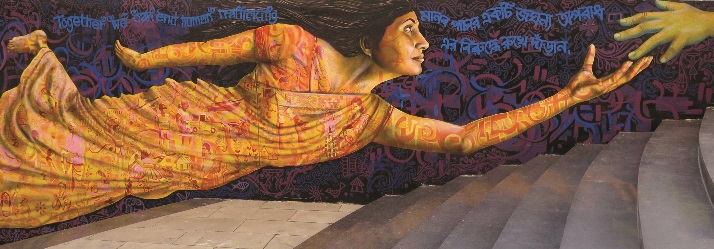
The University of Nottingham’s Rights Lab is working to help end global slavery by 2030.
It is one of our six Beacons of Excellence – transdisciplinary areas of world-leading research excellence that address global challenges.
The Beacons were unveiled at the Royal Society in London at the launch of the University of Nottingham’s Research Vision, an unprecedented investment of more than £200m in our people and our research. The launch attracted widespread media coverage of how the University will attract world-class talent and enhance our international reputation as we address all 17 of the United Nations’ Sustainable Development Goals.
By supporting the work of our researchers, we will enhance our reputation around the world for discoveries that will change lives, attract further funding for research and forge deeper international partnerships.
Our Beacons of Excellence are instrumental in building this reputation. Each addresses a key global challenge. Following an introduction to Propulsion Futures, which places Nottingham’s expertise at the heart of a revolution in greener transport, the spotlight now falls on the Rights Lab and the fight to end slavery.
There are 46 million people enslaved today. Working closely with slavery survivors, governments and NGOs, our Rights Lab has built the world’s first truly large-scale research platform for ending slavery. The University is home to the world’s leading contemporary slavery experts, including Professor Kevin Bales, CMG, whose work on slavery has been named one of the top ‘World-Changing Discoveries’ by the Association of British Universities.
Professor Zoe Trodd, Director of the Rights Lab, says: “The UN’s Sustainable Development Goals call for an end to slavery by 2030. To help achieve this, the Rights Lab is underpinning antislavery with an advanced research platform for the first time in the 230-year history of antislavery action. Our comprehensive disciplinary breadth means we can apply the lessons of past antislavery movements as a usable past; design new mental health recovery techniques for survivors of slavery; understand slavery’s relationship to environmental destruction; and design new slavery-free supply chains, to mention just a few of our projects.”
Todd Landman, Rights Lab Executive Director and Pro Vice Chancellor, Faculty of Social Sciences, adds: “The Rights Lab brings together more than 100 scholars at the University of Nottingham across a wide range of disciplines and projects, all dedicated to understanding and ending modern slavery. The scale of the University and the quality of our scholars provides the perfect platform for addressing this significant global challenge, while our commitment to scientific and methodological rigour means we are establishing systematic evidence and analysis of modern slavery.”
Ending slavery will create a better world for everyone – read more about this Freedom Dividend in Professor Trodd’s introduction to the Rights Lab.
How Nottingham is mapping slavery from space
For more information on the Rights Lab visit www.nottingham.ac.uk/world
Over the coming weeks we will introduce the remaining four Beacons of Excellence: Future Food, Precision Imaging, Smart Industrial Systems and Green Chemicals, while highlighting how our investment is supporting all researchers in the delivery of exceptional discoveries.
Posted on Monday 3rd July 2017